Class 3 Maths - Division - CBSE Worksheets Solutions
Q1. Sharing Objects Equally
(Fill in the blanks with the correct numbers)(i) Put 20 flowers equally into 4 vases.
Total number of flowers = 20
Number of vases = 4
Division fact: 20 ÷ 4 = 5
So, number of flowers in each vase = 5
(ii) There are 24 marbles. Share them equally among 4 children. Total number of marbles = 24
Total number of marbles = 24
Number of children = 4
Division fact: 24 ÷ 4 = 6
So, number of marbles with each child = 6
Q2: Divide by repeated subtraction
(Subtract repeatedly to find the quotient)(i) 25 ÷ 5
Ans: 25 - 5 = 20
20 - 5 = 15
15 - 5 = 10
10 - 5 = 5
(ii) 18 ÷ 2
Ans: 18 - 2 = 16
16 - 2 = 14
14 - 2 = 12
12 -2 = 10
10 - 2 = 8
8 - 2 = 6
6 - 2 = 4
4 - 2 = 2
(iii) 8 ÷ 2
Ans: 8 - 2 = 6
6 - 2 = 4
4 - 2 = 2
(iv) 12 ÷ 3
Ans: 12 - 3 = 9
9 - 3 = 6
6 - 3 = 3
(v) 20 ÷ 4
Ans: 20 - 4 = 16
16 - 4 = 12
12 - 4 = 8
8 - 4 = 4
Q3: Fill in the blanks by writing the division fact for the following
(i) Divide 14 leaves into 7 equal groups.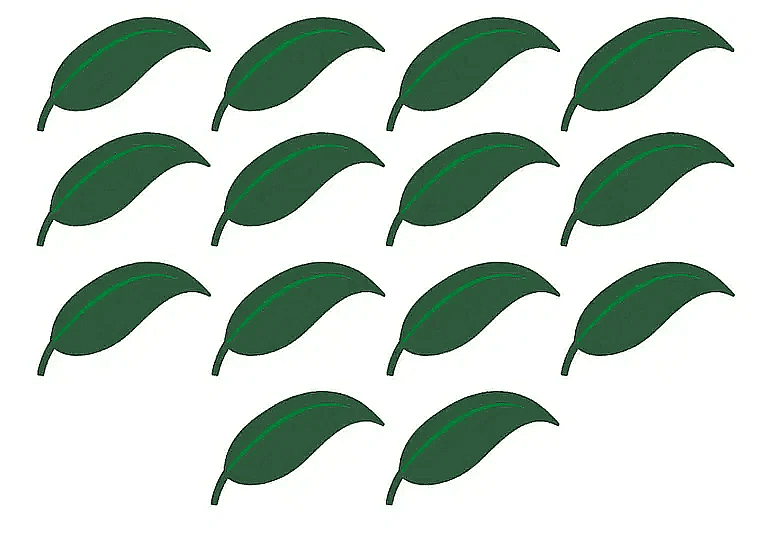
Ans: 14 ÷ 7 = 2
(ii) Divide 15 stars in 3 equal groups. Ans: 15 ÷ 3 = 5
Ans: 15 ÷ 3 = 5
Q4: Divide the following by grouping them equally
(i) 20 buttons, 4 buttons in 1 packet.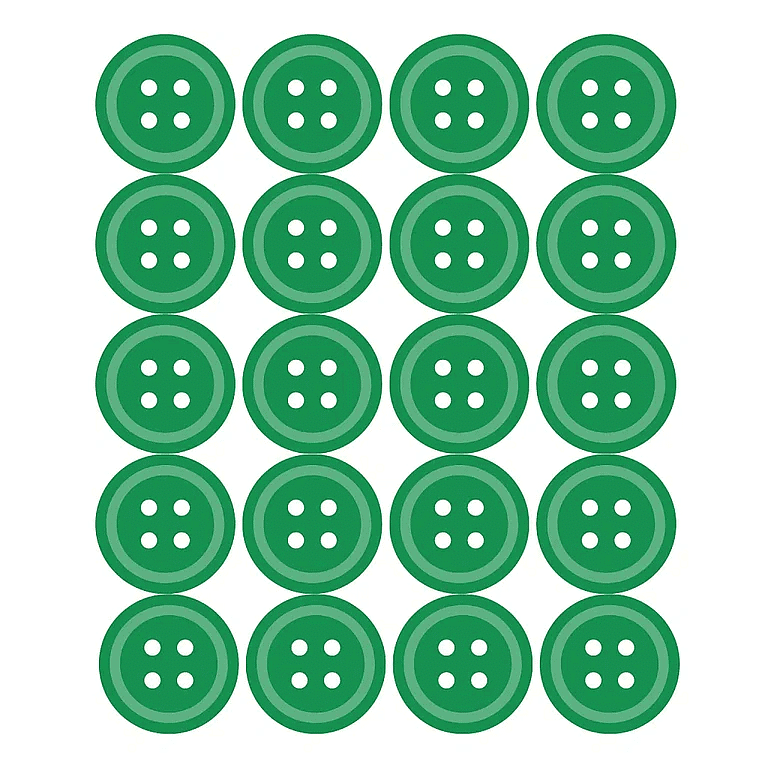 Total number of buttons = 20
Total number of buttons = 20
Number of buttons in each packet = 4
Number of packets required = 5
Division fact:
20 ÷ 4 = 5
(ii) 30 keys, 6 keys in 1 ring.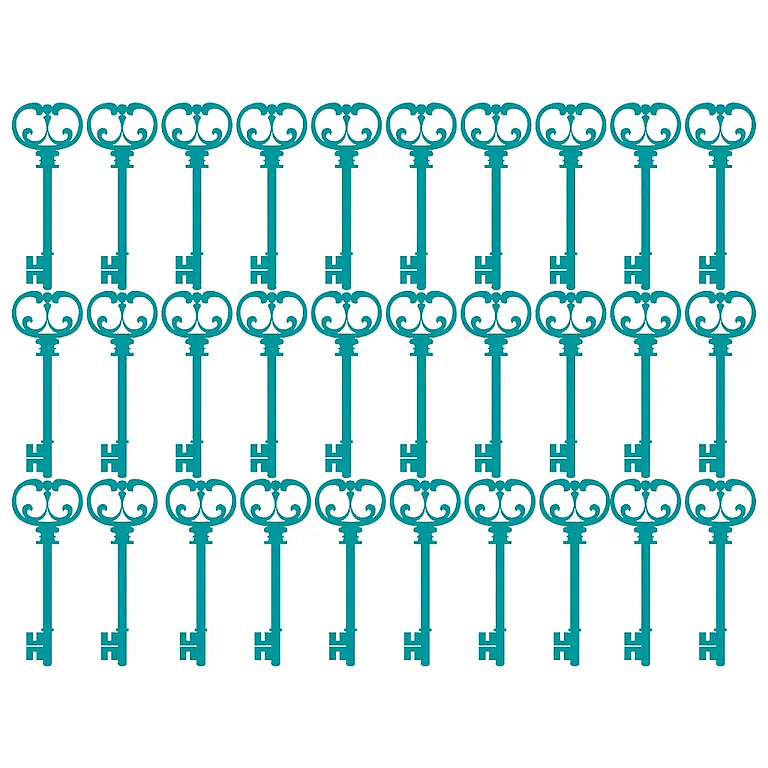 Total number of keys = 30
Total number of keys = 30
Number of keys in each ring = 6
Number of rings required = 30 ÷ 6 = 5
Q5:Answer the following questions
(i) How many times you can take away 6 from 48?
Ans: You can take away 6 from 48 eight times. (48 ÷ 6 =8)
(ii) How many 6s are there in 18?
Ans: There are 3 sixes in 18. (18 ÷ 6 =3)
(iii) Tom, Jim and Jerry are fighting for 81 cheese cubes. They finally agree to share the cheese cubes equally amongst themselves. How many cheese cubes will Tom get?
Ans: Tom will get 27 cheese cubes.
(iv) Ram had Rs. 100. He bought 10 notebooks. He did not have any money left. How much does each notebook cost?
Ans: Each notebook costs Rs. 10. (100 ÷ 10 =10)
Q6: Match the following by using tables
(Match the correct division facts with their corresponding values.)

Ans: 
Q7: Identify Dividend, Divisor, and Quotient
(Look at the division facts and complete the table below.)
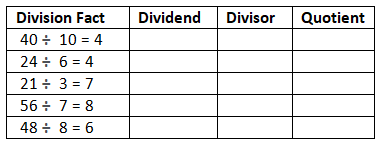 Ans:
Ans:
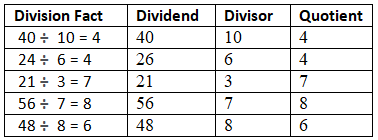
Q8: Write division facts for the following multiplication facts
(i) 7 x 8 = 56Ans: Division facts: 56 ÷ 7 = 8 and 56 ÷ 8 = 7
(ii) 9 x 3 = 27
Ans: Division facts: 27 ÷ 9 = 3 and 27 ÷ 3 = 9
(iii) 2 x 6 = 12
Ans: Division facts: 12 ÷ 2 = 6 and 12 ÷ 6 = 2
(iv) 5 x 7 = 35
Ans: Division facts: 35 ÷ 5 = 7 and 35 ÷ 7 = 5
Q9: Fill in the blanks
(i) 7 ÷ 1 = 7(ii) 8 ÷ 8 = 1
(iii) 4 ÷ 4 = 1
(iv) 19 ÷ 1 = 19
Q10: Write the long form of division for the following division facts
(Show the step-by-step division process for the given facts.)(i) 27 ÷ 9 = 3
Ans:
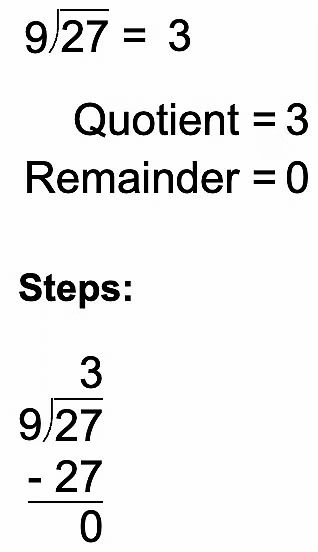
(ii) 56 ÷ 8 = 7
Ans:
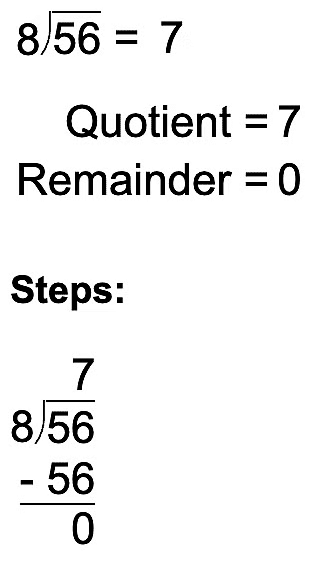
(iii) 56 ÷ 7 = 8
Ans:
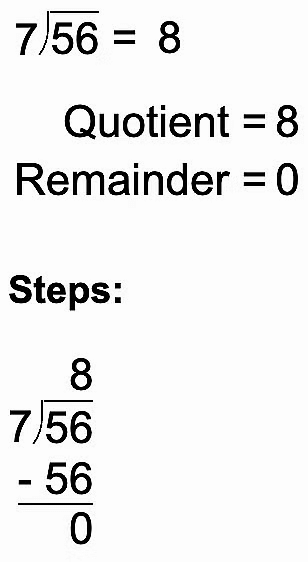
(iv) 36 ÷ 9 = 4
Ans:
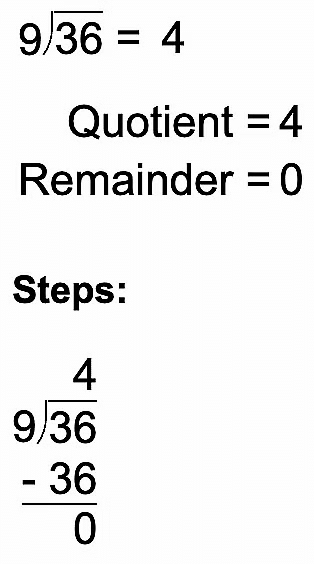
Q11: True or False
(Write 'True' or 'False' for the statements below.) (i) Any number divided by 1 gives the number itself.
(i) Any number divided by 1 gives the number itself.Ans: True
(ii) No number can be divided by zero.
Ans: True
(iii) A number divided by itself gives the result zero.
Ans: False
(iv) Zero divided by a number gives the result zero.
Ans: True
(v) A number can be divided by a large number.
Ans: True
Q12: Write the short form of division
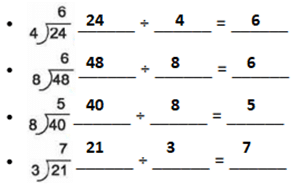
|
39 videos|158 docs|19 tests
|
FAQs on Class 3 Maths - Division - CBSE Worksheets Solutions
| 1. How do you divide two numbers using long division? |  |
| 2. What is the difference between division and long division? |  |
| 3. How can I check my division answer using multiplication? |  |
| 4. What should I do if I encounter a remainder when dividing? |  |
| 5. Can long division be used for dividing decimals? |  |

















